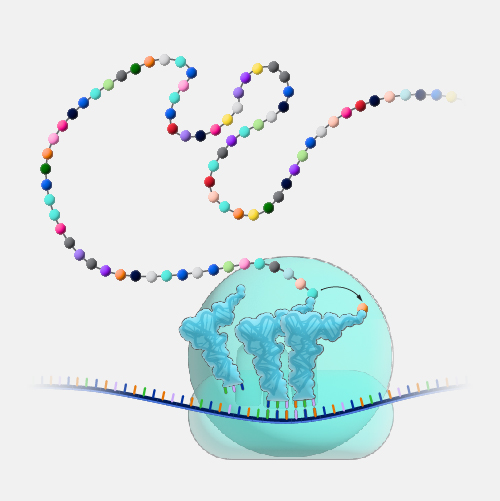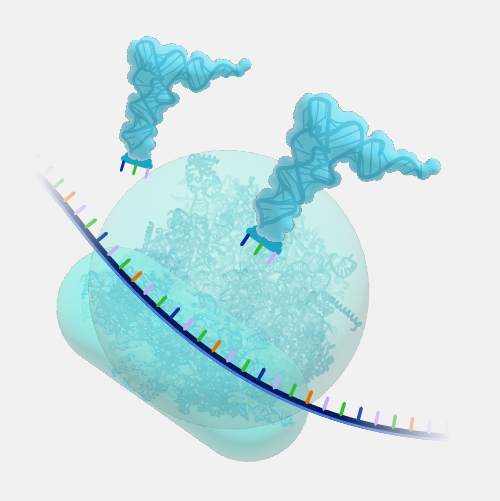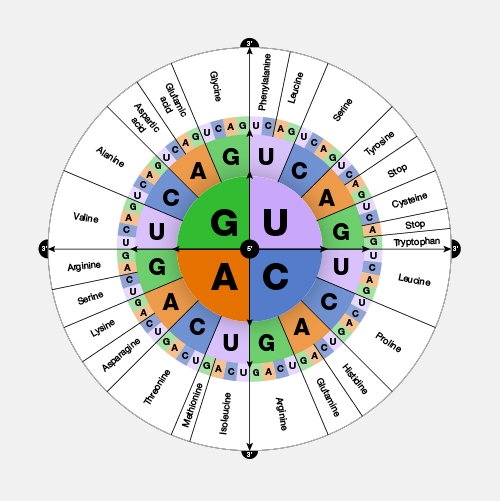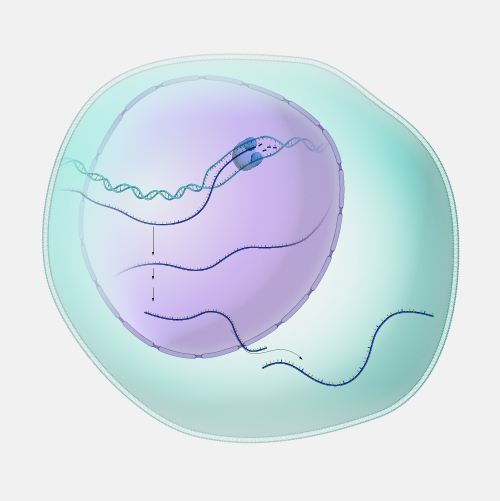
Ribosome
Definition
A ribosome is an intercellular structure made of both RNA and protein, and it is the site of protein synthesis in the cell. The ribosome reads the messenger RNA (mRNA) sequence and translates that genetic code into a specified string of amino acids, which grow into long chains that fold to form proteins.

Narration
Ribosome. A ribosome is the cellular machinery responsible for making proteins. There are many ribosomes in each cell, each made up of two subunits. These two subunits lock around the messenger RNA and then travel along the length of the messenger RNA molecule reading each three-letter codon. The ribosome serves as a docking station for the transfer RNA that matches the sequence of bases on the messenger RNA. Each three-letter codon on the messenger RNA pairs with the matching anticodon on a specific transfer RNA, and that specific RNA allows for the addition of a specific amino acid on the end of the growing protein chain. The ribosome then breaks up after the completion of the protein.




